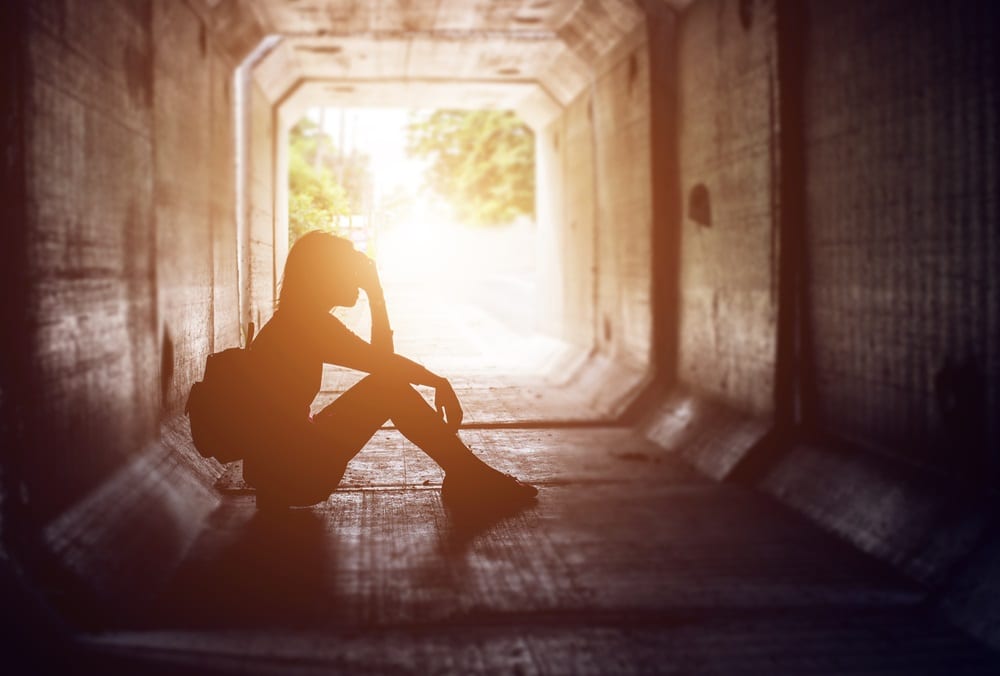October is National Bullying Prevention Month, a month-long observance to encourage communities nationwide to unite and raise awareness of bullying prevention through events, activities, and education. In recognition of this event, www.rtor.org has engaged psychologist Todd Griffin, Director of TG Psychology in Penrith, Australia to write a guest blog on bullying and depression in teens.
Bullying is unfortunately one of the most persistent problems a child can face in school. It can be especially detrimental when children experience this during their teenage years. You may also have experienced this at some point during your childhood, but it’s a totally different thing when your teenager is the one it happens to.
Reactive Depression
Before we talk about how to resolve bullying issues that your teenager may experience, it’s first important to discuss one potential effect of bullying called “reactive depression”. Reactive depression is a reaction to high levels of stress. It can have a wide variety of causes:
- It can be from a death of a close loved one.
- It can be related to separation or divorce.
- It can also be related to a traumatic event.
Reactive depression, when experienced by children, can be very concerning because they don’t have the coping abilities we adults have. This is also true with teenagers.
Unfortunately, many parents do not to recognize that the “changes” their teenagers are exhibiting are actually signs of depression. This is because we commonly associate those “changes” with teen angst and ordinary growing pains.
- Sometimes, teenagers can display symptoms similar to adults that also have a depressive disorder.
- Sometimes, however, teenagers develop ways of masking those issues as well. Sadness and hopelessness sometimes gets presented as anger or even rage.
What Does the Brain Do When a Teen Is Bullied?
Current theories suggest that depression is often caused by a chemical imbalance in the brain. This is why some treatment for depression involves taking medicine to help adjust those chemicals. Other options are to seek the help of a psychologist or pyschotherapist.
When teenagers are bullied, their brains are flooded with stress reaction chemicals. Over time, this can create chronic imbalance. Thankfully, this kind of imbalance can be dealt with. When found early on, it can be treated with proper medical care.
Symptoms of Reactive Depression
Do remember that the symptoms below can also be associated with ordinary child development, especially for teenagers. However, when these symptoms last for weeks and even interfere with daily life, then these are things you have to watch out for.
- Your child has increased sensitivity to being rejected.
- Mood swings, especially those related to anger, are more common.
- Their sleep patterns change: either they sleep too much, or they don’t receive any sleep.
- They have reduced ability to be sociable with others. This can evolve to social withdrawal from peers and even family.
- Some may even develop suicidal thoughts and attempts.
- Their performance in school has decreased.
- They tend to give up on things they enjoyed before.
- They have feelings of hopelessness and worthlessness.
- They have significant changes in weight.
- They complain about pain – such as in the chest, stomach, or headaches – that don’t disappear with treatment.
- They develop behaviors considered self-destructive such as alcohol or drug abuse.
Tips for Parents
Treatment for bullying, especially with teenagers, is tricky, especially if they’re in a phase that they are not exactly close with you. Always remember that you have been a teenager as well, so you of all people know what your child is going through. Here are some ways for you to help your teenager:
-
Be a Friend to Them
Sometimes, showing that you’re a friend, not just a parent, counts. This helps your teenager open up to you about issues they experience. If you show them that you’re willing to be an older friend they can count on, you can make it easier for them to open up with you.
-
Be There for Them, But Let Them Have Their Space
This is difficult, given the issue at hand, but it is important to give your teenager a sense of responsibility and power.
- You have to be there as a parent, and you should show that to them.
- However, don’t overstep your boundaries, especially at a time when teenagers feel they have a “reputation” to uphold.
- Give some guidance to your teens, and help them apply it to their daily life.
-
Talking is Important
Encourage your teen to speak up with you, or at least to their peers, about their issues.
- Help them understand that bullying isn’t right and that depression is not just a phase.
- Help them see for themselves that they have the power to assert themselves in the face of bullying.
- You can also encourage your child to participate in group discussions and therapy.
Conclusion
Perhaps it is also helpful to think of this from your own perspective as a former teenager – as much as we want to always be involved with our teenagers, we must also give them time to grow, just as we wanted at that age.
The above points are just some of the ways you can help your teen through depression when being bullied at school. Always remember that a key factor here is communicating with your child and understand that your child is also developing at the same time. However, if you find that the depression and bullying are worse than you originally imagined, you may need to get help from a professional to help talk it through with them.
If you have any questions and inquiries, feel free to comment and share your thoughts below!
Bullying is a serious issue and if you feel that your child needs help coping with depression, it is important to seek help from a qualified professional. Our Resource Specialists can help you find expert mental health resources to recover in your community.
Contact us now for more information on this free service to our users.
Author Bio: Todd Griffinis the Director and Principal Psychologist at TG Psychology, in Penrith, NSW, Australia. He has over 14 years of experience working with adults and young people in both public health and private practice settings. He has treated people from diverse cultural backgrounds, with a variety of emotional health and behavioral issues, including depression, anxiety, relationship issues, anger, addictions, trauma and grief. He has also facilitated a number of group programs, treating a wide range of issues: from quitting cannabis, to social skills training, self-esteem development and curtailing deliberate self-harm behaviors.
http://www.pacer.org/bullying/nbpm/unity-day.asp
The opinions and views expressed in this guest blog do not necessarily reflect those of www.rtor.org or its sponsor, Laurel House, Inc.
Recommended for You
- Why Eating Disorders in Men Are Often Missed - July 3, 2025
- No More Silence: The Opioid Epidemic’s Alarming Impact on Women - June 30, 2025
- The Hidden Impact of Repressed Memories on Mental Health and How to Heal - June 26, 2025







